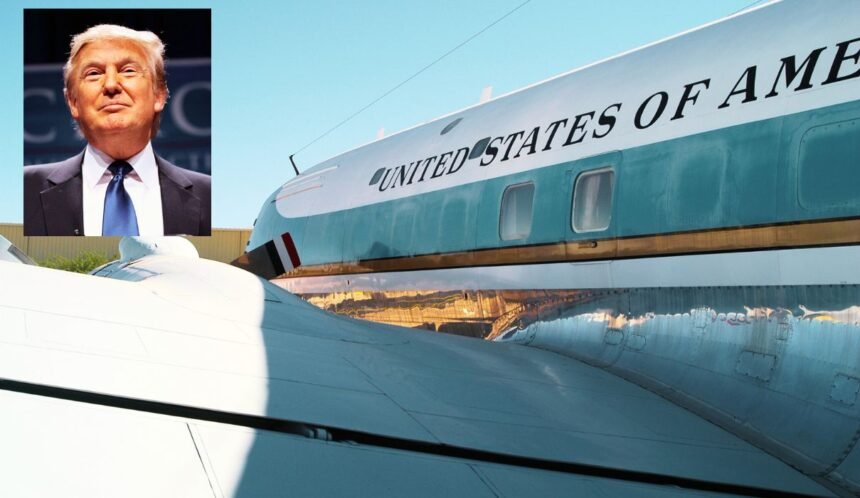Boeing’s financially troubled Air Force One program, strongly influenced by former President Donald Trump’s hard-nosed negotiations, has now cost the company over $2 billion in losses. However, Boeing CEO Dave Calhoun struck an optimistic tone about the aircraft’s 2026 delivery date.
When Will Air Force One Be Ready?
During Boeing’s latest earnings call on Wednesday, Calhoun reassured analysts that despite lingering issues with labor, suppliers, engineering, and manufacturing, the two new Air Force One jets ordered to replace the aging incumbents are still on track for 2026 completion.
This echoes his comments last year when he called the Air Force One deal a “very unique negotiation” and “very unique set of risks,” but remained confident in Boeing’s ability to deliver.
The new aircraft, customized Boeing 747-8s, will bear the Air Force One call sign when the President is onboard. They are designed to be an airborne White House, equipped with extensive communication systems, defensive countermeasures, and hardened to withstand an electromagnetic pulse.
Trump Demanded Fixed-Price Contract
The financial risk Boeing faces stems from then-President Trump’s pressure on the company to accept a fixed-price contract. As per reports, Trump actively participated in the talks and threatened to cancel the order outright if the jets substantially exceeded the initial $3.9 billion budget.
Normally on defense contracts, cost overruns would be passed on to taxpayers. But Trump was adamant that Boeing take responsibility for any budget issues with the program.
Last year Boeing CEO Calhoun admitted this contract structure was a “mistake” but that the company would follow through regardless.
$2 Billion and Counting in Losses
And those losses are indeed piling up. In its latest financials, Boeing revealed an additional $482 million loss on the Air Force One work, contributing heavily to the company’s $3.3 billion core operating loss for the quarter.
That brings the total overrun so far to over $2 billion – a massive financial burden for Boeing, already struggling with problems on its commercial aviation side due to issues with its 737 MAX.
The White House has not commented on whether President Biden will renegotiate the contract terms to provide Boeing some relief. But for now, the deal Trump struck locks Boeing into the fixed-price structure.
CEO Strikes Upbeat Tone
Despite the additional losses, Boeing CEO Calhoun stated that the Defense division is recovering, albeit “slower than I’d like.”
He stressed that Boeing remains “confident in the future” and in meeting the 2026 target for Air Force One delivery and restoring profitability to defense programs shortly after.
Boeing’s $469 billion backlog also includes over 5,100 commercial jet orders, helping boost confidence. While revenue and losses still lag pre-pandemic levels, the trendlines are starting to improve.
The next couple years remain crucial for Boeing – both to get its financial house in order and deliver on the high-visibility, high-pressure Air Force One deal.
But CEO Calhoun’s upbeat comments suggest Boeing is up to the challenge. Even if former President Trump’s negotiations have cost billions – Boeing appears poised to have the last laugh come 2026.





